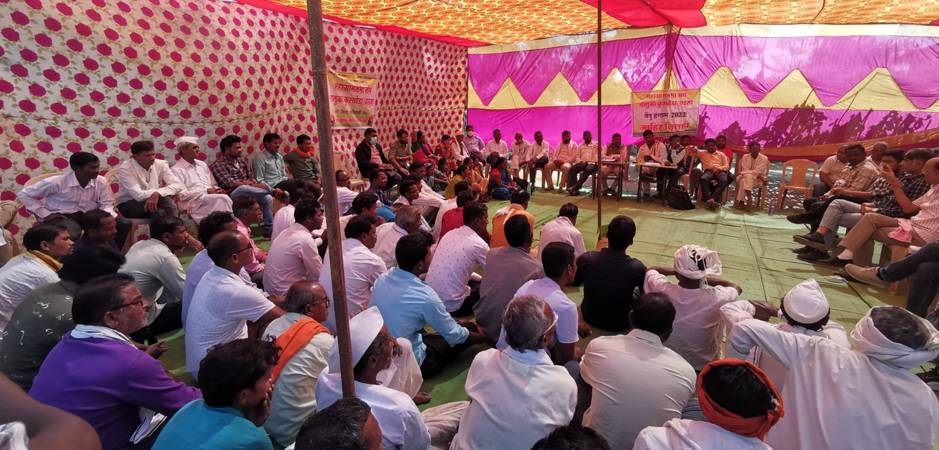This post contextualises the constitutional and legal framework within which the recent anti-religious conversion Ordinances in India need to be viewed. Shubham Gandhi examines the new statutes, demonstrating how on the one hand these Ordinances continue similar moves in India starting from the 1960s, and on the other, how they may potentially conflict with India’s wider global commitment to citizens’ freedoms.
India, the world’s largest democracy with the longest written constitution in the world, is a quasi-federal secular state. The Constitution of India does not prescribe a rigid demarcation between powers of central (union) and state governments; instead, it incorporates elements of federalism by providing a degree of autonomy to the state government with respect to their state. In the absence of any legislation by the Centre on a particular subject, the state government can enact legislation per their legislative competency, valid for their jurisdiction.
On 27 November 2020, the state government of Uttar Pradesh (UP), after considering recommendation of the UP Law Commission, promulgated the Prohibition of Unlawful Conversion of Religion Ordinance, 2020. This was trailed by the Madhya Pradesh (MP) government enacting the Madhya Pradesh Freedom of Religion Ordinance, 2020 in January 2021. These Ordinances look to control conversions and preclude specific sorts of religious conversions.
Anti-Conversion Laws in India
Article 25 of the Constitution of India ‘guarantees the freedom to profess, propagate, and practise religion, and allows all religious sections to manage their own affairs in matters of religion; subject to public order, morality, and health’. Until now, there had been no central enactment limiting or managing religious conversions; further, in 2015, the Union Law Ministry expressed that Parliament does not have the administrative skill/competence to pass anti-Conversion legislation.
Through the decades, some states have instituted ‘Freedom of Religion’ enactments to confine forcible religious conversions, or through misrepresentation or promptings. These are Odisha (1967), Madhya Pradesh (1968), Arunachal Pradesh (1978), Chhattisgarh (2000 and 2006), Gujarat (2003), Himachal Pradesh (2006 and 2019), Jharkhand (2017), and Uttarakhand (2018).
Freedom of Religion via International Law
India is a signatory to certain international treaties and conventions. The Constitution of India imposes an obligation on the state to respect and fulfil its commitment to international law in the form of Directive Principles of State Policy under Article 51 of the Constitution. Generally, international law is not legally binding, allowing states to enact their own legislation, but in India, attempts have been made by the judiciary to incorporate international law.
The Indian Supreme Court, in the landmark judgment of Kesavananda Bharati v. State of Kerala, observed that the rights set out in the Universal Declaration of Human Rights (UDHR) have already been enshrined in the Indian Constitution in the form of fundamental rights and thus, the interpretation of fundamental rights has to be done in light of international law.
India is also a signatory to the International Covenant on Civil and Political Rights (ICCPR). Article 18 of ICCPR in clear terms states that:
- Everyone shall have the right to freedom of thought, conscience and religion. This right shall include freedom to have or to adopt a religion or belief of his choice, and freedom, either individually or in community with others and in public or private, to manifest his religion or belief in worship, observance, practice and teaching.
- No one shall be subject to coercion which would impair his freedom to have or to adopt a religion or belief of his choice.
One may argue that UDHR has adopted the force of customary international law, and that in connection with the ICCPR, which is binding on its Treaty signatories, India has an obligation that goes beyond the Supreme Court of India’s interpretation of the Indian Constitution with regard to Article 25. These provisions should be seen as aiming for religious freedom rather than religious equality, as is the case with the Indian Constitution. Therefore, these objects of international law should lend support to finding anti-conversion laws unconstitutional.
The Review of the Uttar Pradesh & Madhya Pradesh Ordinance
The Uttar Pradesh (UP) and Madhya Pradesh (MP) Ordinances characterise conversion as repudiating one’s current religion and embracing another religion. Nonetheless, the two Ordinances do not prohibit re-conversion back to the immediately previous religion (in UP), and parental religion (in MP) from this definition. Parental religion is the religion to which the person’s father was born at the time of the individual’s birth.
Prerequisite for conversion: Both the Ordinances require: (i) people wishing to change over to an alternate religion; and (ii) people managing the conversion (religious convertors in UP, and religious ministers or people coordinating a conversion in MP) to present an advance declaration of the proposed religious conversion to the District Magistrate (DM). In both expressions, individuals seeking to convert are required to give notification of 60 days to the DM.
Forbiddance on conversions: Both the UP and MP Ordinances deny conversion of religion through implications, for example: (i) force, misrepresentation, undue influence, and allurement; or (ii) misrepresentation; or (iii) marriage. They additionally restrict an individual from abetting, persuading and planning such conversions. The Ordinances further appoint the weight of evidence of the legitimacy of religious conversion to: (i) the people causing or encouraging such conversions in UP; and (ii) the individual blamed for causing unlawful conversion in MP.
Complaints against unlawful conversions: Both Ordinances allow for police complaints against unlawful religious conversions to be registered by: (i) the victim of such conversion; (ii) his/her parents or siblings; or (iii) any other person related to them by blood, marriage or adoption. The MP Ordinance additionally permits persons related by guardianship or custodianship to also register a complaint, provided they take the leave of the court. Further, the MP Ordinance assigns the power to investigate such complaints to police officers of the rank of Sub-Inspector and above.
Marriages including religious conversion (Sec. 6): According to the UP Ordinance, a marriage is at risk of being declared invalid and void, on the off chance that: (i) it was accomplished for the sole reason for unlawful conversion, or vice versa; and (ii) the religious conversion was not done according to the methodology determined in the Ordinance. Also, the MP Ordinance pronounces a marriage invalid and void, on the off chance that: (i) it was completed with a goal to change an individual’s religion; and (ii) the conversion occurred through any of the precluded implies indicated under the Ordinance.
Concluding Remarks
Religious beliefs, ideology and convictions are significant elements for leading human life. The world is at present going through trying times, and one of them is the conflict around religion. By dint of Article 18(2) of the ICCPR, no individual can be made susceptible to extreme persuasion that may infringe upon the freedom to maintain his chosen religious identity.
Limitations can in any case be put by managing such privileges of conversion according to the freedom of religion cherished under Article 25(1) of the Indian Constitution — the most fragile protected right. Notwithstanding that, if an individual readily converts to another religion, the state needs to guarantee that his new religious character does not become a reason for disturbance in the public arena. The state is under commitment to regard and ensure the privileges of the person. Freedom of Religion is essential for the overall improvement of human keenness and personality.
Banner image © ‘Angel Wings’, 2018, by Designecologist, Unsplash.
The views expressed here are those of the author, and not of the ‘South Asia @ LSE’ blog, the LSE South Asia Centre or the London School of Economics & Political Science.







